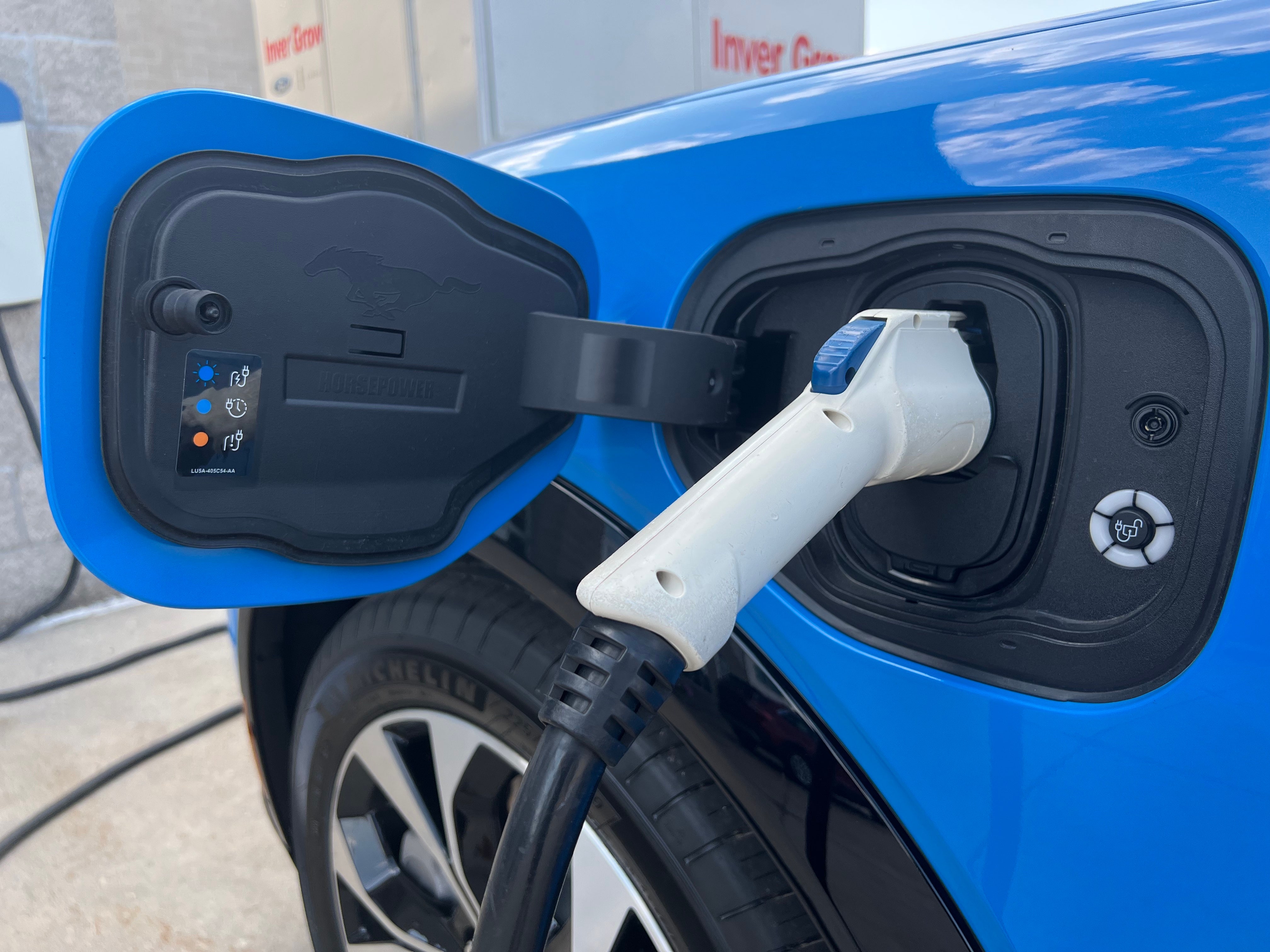Car Dealers Renew Fight Against Electric Vehicle Mandates

Table of Contents
Economic Concerns Fueling Dealer Opposition
The core of the dealers' resistance to electric vehicle mandates stems from significant economic concerns. The transition to an EV-centric market represents a substantial financial burden for many dealerships, impacting their profitability and long-term viability.
-
High Upfront Investment Costs: Dealerships face hefty upfront costs associated with transitioning to EV sales. This includes investing in expensive charging infrastructure, specialized tools for EV maintenance and repair, and training technicians on new technologies. The cost of installing Level 2 and DC fast chargers can range from thousands to tens of thousands of dollars, depending on the size and capacity needed. This is a significant barrier for smaller dealerships with limited capital.
-
Reduced Profitability on EVs: Many dealers express concerns about lower profit margins on electric vehicles compared to gasoline-powered cars. The reduced complexity of EVs translates to fewer service and repair opportunities, a significant revenue stream for traditional dealerships. The current business model, reliant on high-margin parts and service, is threatened by the anticipated lower maintenance needs of EVs.
-
Decreased Sales Due to Market Factors: Dealers fear decreased sales due to consumer hesitancy towards EVs. Range anxiety, charging infrastructure limitations, and the higher initial purchase price of many EVs remain barriers to widespread adoption. Moreover, the limited selection of EVs currently available, especially in certain segments like trucks and SUVs, further constrains consumer choice and potentially impacts sales volume.
-
Insufficient Government Support: Dealers argue that government support for the transition to EV sales is inadequate. They seek more financial incentives and assistance to offset the substantial costs associated with infrastructure upgrades, training, and inventory adjustments needed to effectively sell and service electric vehicles. The lack of comprehensive support programs leaves many feeling unprepared and vulnerable.
Arguments Against the Timing and Implementation of EV Mandates
Beyond economic concerns, dealers raise significant objections to the timing and implementation of current EV mandates. They argue that the current infrastructure and technology are not yet ready for a mass shift to electric vehicles.
-
Insufficient Charging Infrastructure: The lack of widespread and reliable charging infrastructure is a major hurdle. While charging stations are becoming more common, the density and geographic distribution remain insufficient to support widespread EV adoption, particularly in rural areas. This infrastructure gap creates "range anxiety" for potential EV buyers, hindering market penetration.
-
Technological Limitations of Current EVs: Concerns persist about the reliability and range of current EV technology. While technology is improving, battery range and charging times still lag behind the convenience of gasoline-powered vehicles for many consumers. Improvements in battery technology and faster charging solutions are crucial before a widespread transition is feasible.
-
Lack of Consumer Demand in All Market Segments: Demand for EVs varies across vehicle segments. While demand is strong in certain segments, like compact cars, it's much lower in others, such as pickup trucks and SUVs. Mandates that don't account for these market variations could disproportionately impact dealers specializing in these less-electrified segments.
-
Strain on the Electricity Grid: A rapid increase in EV adoption could place a significant strain on existing electricity grids, potentially leading to power outages and instability. Significant upgrades to grid infrastructure are necessary to accommodate the increased electricity demand from a large number of EVs.
The Role of Lobbying and Political Pressure
The conflict over electric vehicle mandates has sparked intense lobbying efforts and political maneuvering. Dealer associations and automotive manufacturers are actively working to influence government policy and potentially mitigate or delay the implementation of these regulations.
-
Intense Lobbying Efforts: Powerful lobbying groups representing car dealers and automotive manufacturers are actively working to influence lawmakers, highlighting the economic and practical challenges associated with rapid EV adoption. These groups use various strategies, including direct lobbying, campaign contributions, and public relations campaigns to sway opinion.
-
Political Pressure on Lawmakers: This lobbying translates to significant political pressure on legislators to reconsider or amend the mandates. The automotive industry employs considerable resources to advocate for its interests, making it a powerful voice in the political debate surrounding EV policy.
-
Potential Legal Challenges: Some industry players are exploring legal challenges to the mandates, arguing that they are unreasonable, economically damaging, and potentially violate existing laws or regulations. These legal challenges could further delay or alter the implementation of the mandates.
Alternative Solutions and Compromises
Instead of outright opposition, some suggest exploring alternative solutions and compromises that address dealer concerns while still advancing environmental goals.
-
Phased Approach to EV Adoption: A phased approach allows for a gradual transition, giving dealers time to adapt to the changing market conditions. This approach would involve setting progressively ambitious EV sales targets over a longer period, allowing for a smoother transition and reducing the economic shock.
-
Increased Consumer Incentives: Offering substantial consumer incentives, such as tax credits, rebates, and subsidies, can accelerate EV adoption without solely relying on mandates. These incentives can help offset the higher initial cost of EVs, making them more attractive to consumers.
-
Significant Investment in Charging Infrastructure: Massive investment in public and private charging infrastructure is crucial. This investment should focus on expanding the network of charging stations, improving charging speed, and ensuring equitable access across all geographic areas.
-
Exploring Hybrid Vehicles as a Bridge: Hybrid vehicles offer a transitional technology that can help bridge the gap between gasoline-powered vehicles and fully electric options. Hybrids provide consumers with the benefits of fuel efficiency and reduced emissions while reducing the range anxiety associated with EVs.
Conclusion
The battle against electric vehicle mandates is far from over. Significant economic and practical concerns among car dealers are driving the resistance. While transitioning to electric vehicles is vital for environmental sustainability, the current approach may be too abrupt and potentially harmful to the automotive industry and consumers. Finding a balance between environmental goals and industry viability is critical. A more nuanced approach to electric vehicle mandates is necessary – one that actively addresses dealer concerns and ensures a smoother, more equitable transition for everyone involved. Let's continue this vital conversation about responsible electric vehicle adoption and forge a path towards a sustainable future for the automotive industry.

Featured Posts
-
 Improving The Accuracy Of Automated Lyophilized Vial Inspection
May 12, 2025
Improving The Accuracy Of Automated Lyophilized Vial Inspection
May 12, 2025 -
 Months Of Toxic Chemical Exposure The Ohio Train Derailments Lingering Impact On Buildings
May 12, 2025
Months Of Toxic Chemical Exposure The Ohio Train Derailments Lingering Impact On Buildings
May 12, 2025 -
 Futuro Del Papado Analizando A Los Posibles Sucesores De Francisco
May 12, 2025
Futuro Del Papado Analizando A Los Posibles Sucesores De Francisco
May 12, 2025 -
 Eric Antoine Divorce Nouvelle Relation Et Naissance D Un Enfant
May 12, 2025
Eric Antoine Divorce Nouvelle Relation Et Naissance D Un Enfant
May 12, 2025 -
 Indy Car At Barber Colton Herta Aims For Top Speed
May 12, 2025
Indy Car At Barber Colton Herta Aims For Top Speed
May 12, 2025
